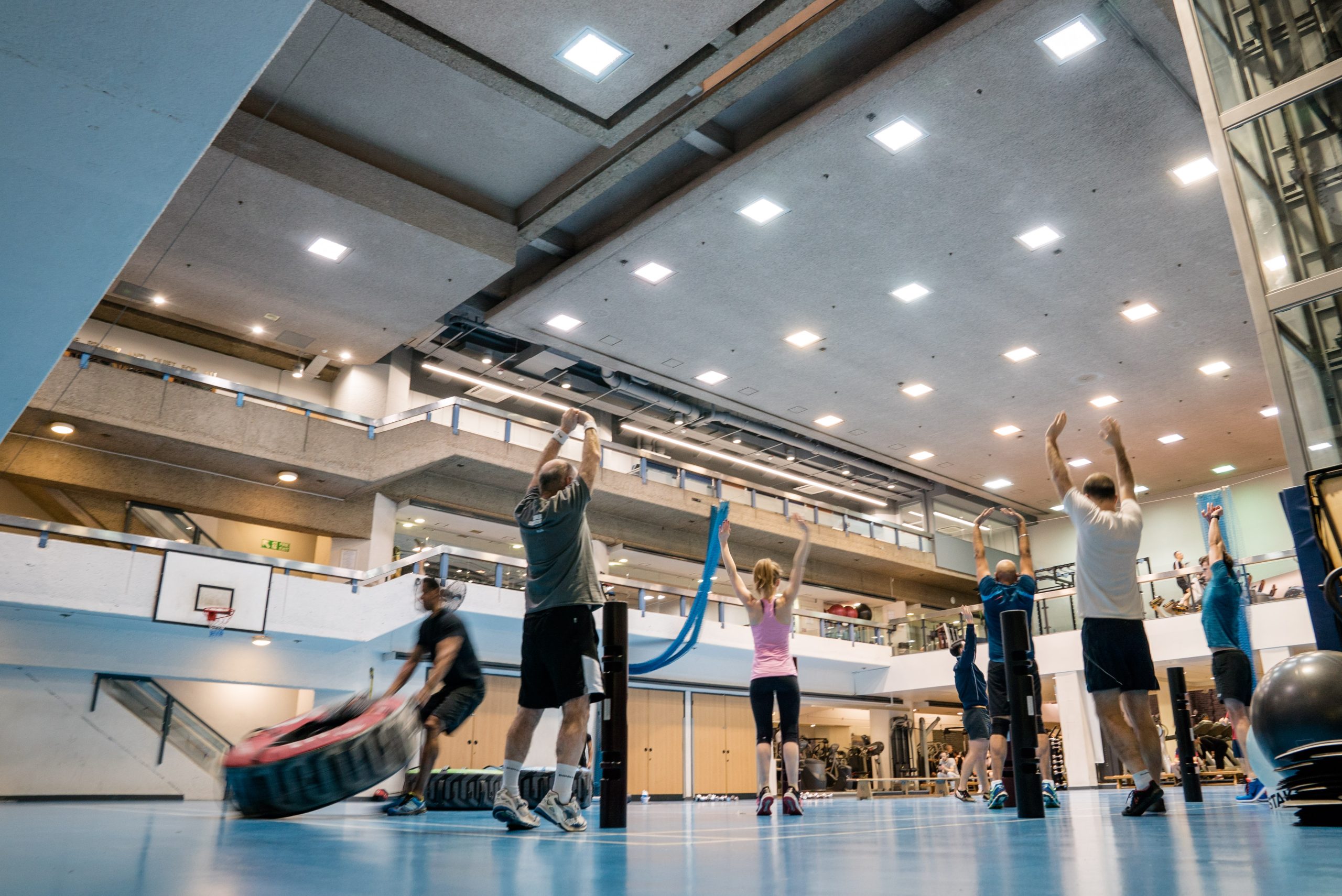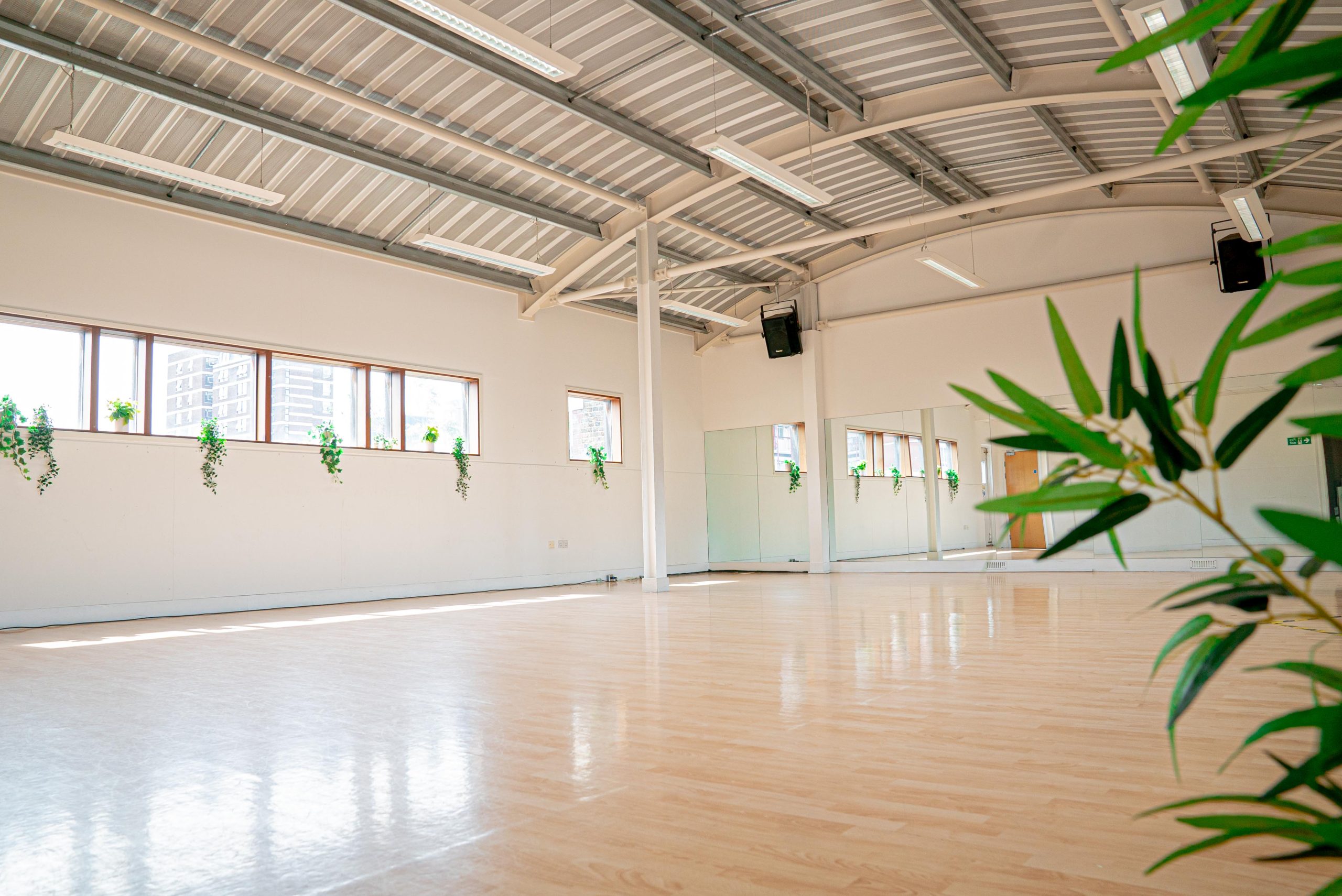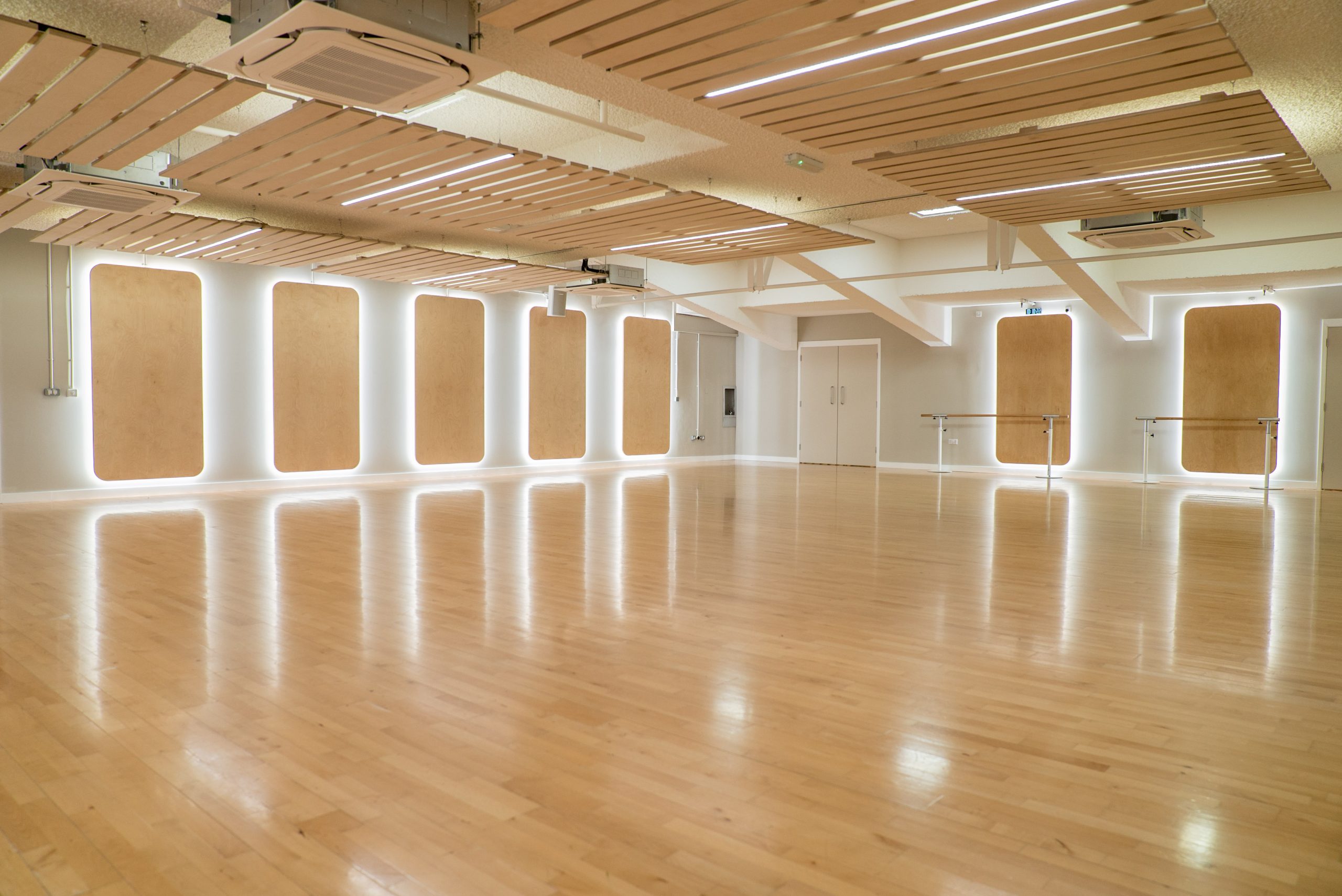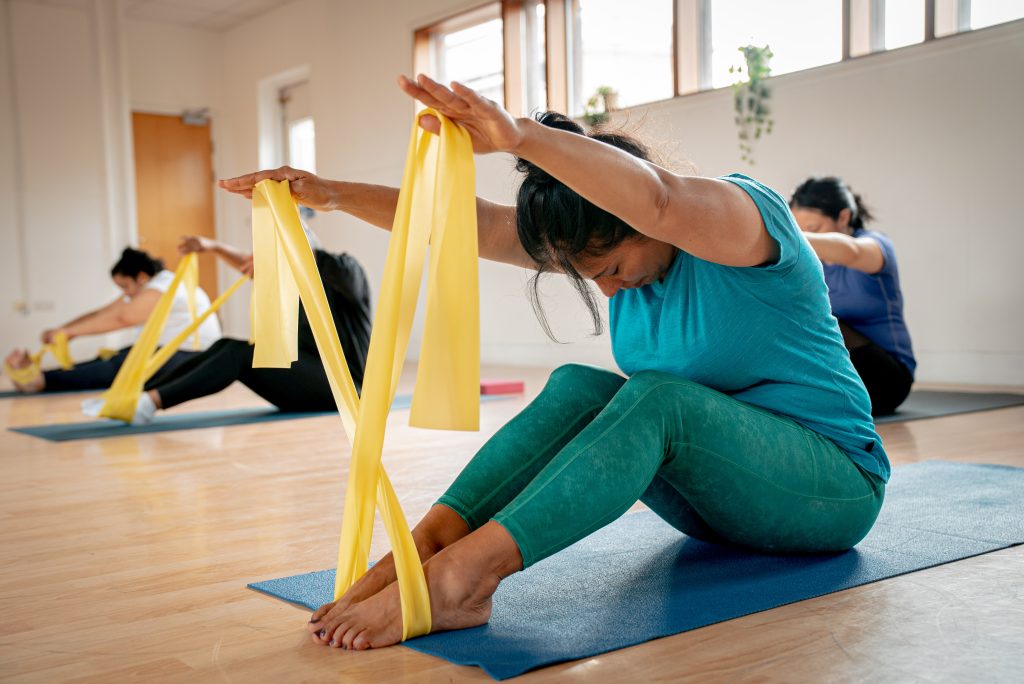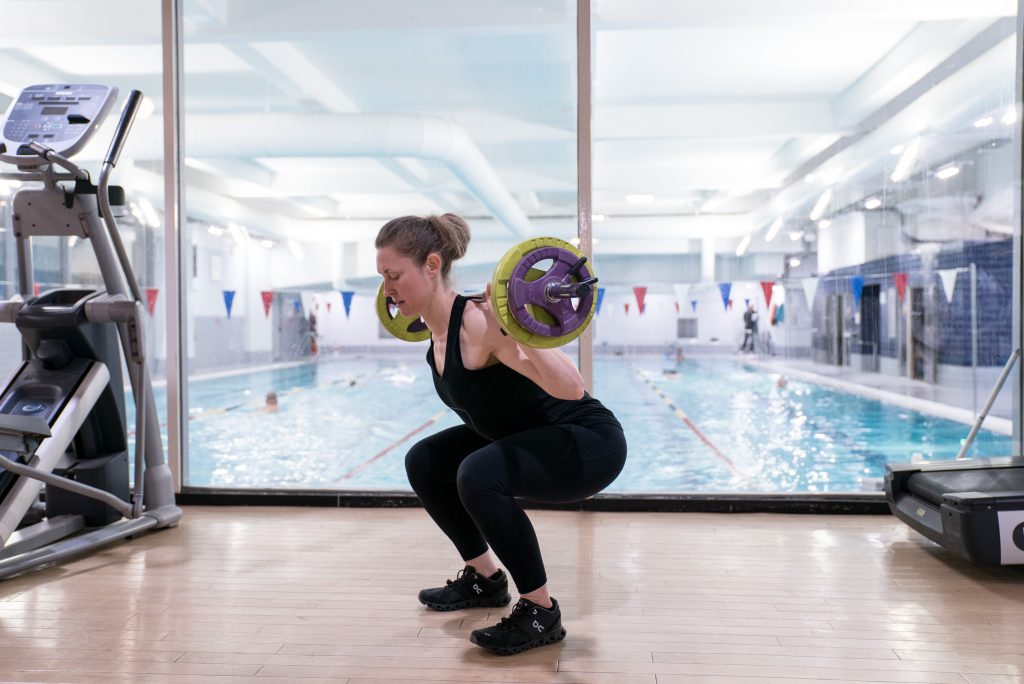Meet Declan: Physical Activity Hero finalist
Declan Duncan has been inspiring people to be more physically active here at Central YMCA Club for over 20 years.
After a long journey at Central YMCA, Declan is now our Community Programmes & Volunteer Manager and is responsible for a great number of programmes, which have a considerable impact in our communities. These include health and wellbeing programmes for Older Adults, people living with HIV, people recovering from Cancer, and those with mental health problems; he also runs our short lifestyle courses and volunteering programme. We are so proud of Declan for this recognition and for everything he has achieved.
The ukActive Physical Activity Hero Award
The award highlights those who have impacted and inspired the people they engage with and showcases the transformational impact of physical activity on health, happiness, and wellbeing. Declan’s work and dedication is being highlighted along with 7 others, before the winner is announced in early June. To celebrate this achievement, we are sharing his incredible story.
Before YMCA
Declan was born in South Africa, where he graduated from Pinelands High School in 1988. He trained in nursing at the prestigious Groote Schuur Hospital, Cape Town – the first hospital in the world to ever perform a successful heart transplant. After qualifying as a nurse, Declan arrived in the UK in 1996. Although he only expected to stay for one and a half years, he’s still here over twenty years later!
Declan’s motivation to help others led him to his first job in London – working with Cancer and HIV+ patients at St Mary’s Hospital, Paddington. While working full-time as a nurse, Declan pursued his interest in health and fitness by also studying to become a personal trainer with Central YMCA:
“I looked up YMCA, because I knew they had a good reputation.”
Having joined Central YMCA in 1999, he still remembers his tutors Denise Page and Tracy Bell; “you know they were good tutors when you remember their names 20-odd years later!” It was these inspiring tutors who directed Declan to a volunteering opportunity at YMCA Club.
Becoming part of YMCA Club
“I remember the day that I walked through the doors at reception when I came to apply as a volunteer. I had no idea of the impact that it would have on my life. I honestly felt so welcomed when I first arrived, and so safe and listened to. That’s what I’ve always wanted to recreate, when I was lucky enough to become a manager.”
Declan’s journey with the Club started in 2000. He first started as a volunteer on our Positive Health Programme, an exercise referral programme for those living with HIV, before becoming an employed Fitness Instructor on the programme in 2005.
With his background in medical care for people with HIV, Declan describes how he was inspired by the Positive Health programme:
“It is, to my knowledge, one-of-a-kind in the whole of the UK. I don’t think there is any other exercise or social prescription programme which focusses on the condition of HIV. It is unique, so I applied to volunteer.”
By 2005, Declan had moved to the Cancer and HIV wards at Chelsea and Westminster Hospital in South Kensington, balancing his part-time work at the Club with his nursing career. However, in 2007, Declan was offered a job as Community Programmes Manager for the Older Adults programme – leaving nursing behind to pursue his work at Central YMCA. He has been here full-time ever since!


Running a team
Declan has overseen the introduction of many innovative programmes at the Club, which have aimed to get people active again after long periods away from exercise. These include RENEW, an exercise referral programme for young people living with Cancer, Project Gym, which engages young men with haemophilia, and Mind Body Matters, a programme providing exercise support to students struggling with their mental health at Birbeck University. He is incredibly grateful to his colleagues at the Club for the roles that they have played:
“I feel proud of what my team and volunteers do, and humbled to be around such incredible people.”
Declan’s impact on the community, especially the Older Adults programme, has been huge. Growing the community programme membership by 11%, with over 1000 members of the gym being over 60, many of these members attended the gym solely to partake in Declan’s exercise classes. Declan’s caring and thoughtful approach to his work is motivated by his genuine respect for each one of his programmes’ members:
“For me, it’s always important that people feel safe when they come into the Club; that they feel that they are valued as a person, that they are included. They are not just a ‘Club member’ – every name has a story behind it.”
“It is the members that keep inspiring me over the years. I’ve been lucky enough to have an amazing team of staff and all my volunteers, who help across the Positive Health and Older Adults programmes. We wouldn’t be able to do half the work that we do without them. When times are tough, these are the people who keep me going.”
Keeping the community together
As the pandemic struck in 2019, Declan stepped up as the main point of contact for our community members who were shielding, isolated or at risk of loneliness and inactivity. He noticed that a lot of elderly Club members used YouTube but did not have access to any other social media sites, so he started filming Zumba and strength training exercise classes specifically for them and posting these on YouTube. This helped to keep the Older Adults moving and offered them a sense of normality and community during the difficult lockdown period.
Declan’s dedication to the Older Adults’ wellbeing has been incredibly inspiring. He added to his YouTube videos by sending out light-hearted, fun monthly newsletters, which had links to his exercise videos for easy access, and health eating tips; even calling some of the members once a week, who did not have access to the internet.
A lot of the Older Adults told Declan how much they valued seeing a familiar face and hearing his voice:
“I feel it gave them something to look forward to.”
“Some of the older adults felt completely lost without the gym. One gentleman would walk past every day hoping that we were open, even though we were in lockdown. It tugs at your heartstrings – you don’t realise the impact that coming here has on people.”


Helping people over lockdown
One woman told Declan how much she looked forward to his emails and videos, because she had spent lockdown alone. In fact, Declan’s YouTube exercise videos became very popular, with one of them reaching over 97,000 views. People from all over the world left reviews, telling us how much his energy and kindness had helped them. What started as a way of keeping our members active and in contact during such a difficult time became a worldwide hit.
Arvinda Gohil, Chief Executive at Central YMCA said:
“We are extremely proud of Declan’s work, and it is fantastic to see that his work is being recognised nationally. His work at Central YMCA UK and his dedication to helping others have impacted the lives of so many people within our community and across the world.”
Here are just some of the people who Declan’s exercise routines have impacted:
“I found your videos on YouTube and I can’t tell you how excited I am every day to do them! Thank you for all you do, and be safe during this extremely difficult time!”– Linda (New York, USA)
“I discovered your YouTube channel a few weeks ago and I wanted to tell you how much I enjoy and appreciate your classes. I’m currently being treated for leukaemia but still wanted to stay as active as possible and your easy Zumba classes are just the ticket! I dance around in my front parlour much to the amusement of my partner. I cannot always complete the entire session, but I have so much fun (even if I seem to have two left feet!) and your friendly smile keeps me going. Thank you so very much for all you do. Stay safe!” – Cynthia (Washington, USA)
“It’s nice to see a friendly face that you know” – Kathy (UK)

Volunteering on the COVID wards
In addition to throwing himself into continuing to provide helpful services during COVID, Declan decided to use his remaining time and nursing skills to help during the pandemic:
“I had to do something and help out.”
One week after this decision, he was doing 12-hour shifts volunteering on the COVID wards of Chelsea and Westminster Hospital. He recalls the hardship that he witnessed:
“Every ward was a COVID ward… there were no visitors. We were just running, all the time. What struck me was how tired some of the nurses, doctors, porters and housekeeping staff looked. Anyone who doesn’t believe in COVID needs to go and work on one of those wards.”
Declan recounts the Army being drafted in in January to help the exhausted medical staff, some of whom had to isolate themselves. He saw soldiers walking around the hospital performing emergency duties, which he described as “eerie”.
“It was scary, it was very challenging and sad. There are some scenes that I hope I never see again.”
“My YMCA was like a break”, a refuge of normality. After the stress and horrors of the COVID wards, seeing familiar Club members’ pictures appearing on his screen brought him happiness and reassurance. For Declan, keeping that balance between the hospital and YMCA was what allowed him to keep going.

Returning to normal
After lockdown was lifted and life began to return to normal, one of the first groups which returned to the Club were the Older Adult and Positive Health members.
There was a queue down the street to enter the Club at 9am on opening day. To ensure that they could return to the Club safely, Declan began creating Older Adults’ accounts for them to book their exercise slots, or even booked them in under his own name. Declan recalls their enthusiasm to return to his classes, and the measures put in place to protect them:
“They were wanting to move again, in their familiar space. It was quite nerve-racking for them, so it was important to reassure them that we were doing things safely in the building, with face-coverings, hand-sanitizer, regular cleaning and a one-way system. Everyone pulled together.”
The impact Central YMCA has had on Declan
“It’s been a long journey – volunteer, part-time, full-time. What’s always kept me here are the members. It’s been so great to see how the physical and social activities impact the Older Adults. I’ve really got to know them and their stories. It’s so interesting when they talk about their pasts, because these are the old London tales that you’re hearing. They are really, really fun characters. Seeing the impact that exercise has on people and seeing them start to take ownership of their fitness is really quite inspiring.”
“It’s made me more aware of my own health and fitness, I was never the sporty type at school! I never thought I’d work in the fitness industry. But seeing the impact of this place on staff and members over the years has also had an impact on me.”
“I have spent most of my working adult life at YMCA. It’s been a real privilege to have worked here for so long, and to have interacted with so many interesting and diverse people across the years.”

